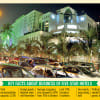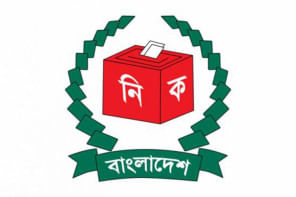Where are we heading?

The deliberations since August 5, 2024, appear converging towards prioritising political reforms as preparation for a fair election. Reforms in political behaviour are needed to build guardrails against the return of electoral autocracy.
By bringing down a despotic leviathan, the anti-discrimination student movement (ASM) has earned the moral authority to be spokespersons for the whole nation. The despot is gone but the leviathan is around. The new dynamic is uncharted territory. Never before since independence has such a young and united force been so attention grabbing in the theater of political power where the actors walk with God and dance with devils.
Student power made the difference
Political institutions have different consequences for different groups and individuals. The conflict over these social choices is resolved in favor of groups with greater political power. This is the reality in which the students have emerged a force seeking change. The transition to a democratic political order will hinge on the role of this new countervailing force in reforming the political institutions. The ASM cannot be wished away.
The novelty of Bangladesh 2.0 is this student power. The ASM has captured de facto political power at the cost of lives, blood and sweat. Can they change political institutions without de jure political power in the future?
We will not know unless we try. We know for sure that the old political model of de jure political power did not deliver. The question is not whether students should have de jure political power in future. The question is what kind of power they want to have and how their expectations can be embodied in the efforts towards building a democratic and inclusive society. It is patently unwise to assume they don't know what they want and why.
Development is correlated with political institutions empowering groups with interests in broad-based property rights enforcement and effective constraints on state institutions and rent seeking by powerholders. There is sufficient uncertainty about the right economic institutions to make well-meaning political actors differ about what is good for their own people.
The July 2024 revolution in Bangladesh proved the conventional political elites wrong. They implemented policies which can now be loudly pronounced as bad for society at large. Fascist practices rose in many forms and persisted as a consequence of despotic choices. The incumbent political elite missed the repressed public dissatisfaction from being in a rule by the rulers' law, no freedom trap morphing into a ticking time bomb. They did not need a Donald Trump to say, "you are fired!"
Resetting the rules of the game
The political powers to reckon with currently are the students, the army, politicians, civil society, media, and the business community. They will have to devise a social contract consistent with the ethos that inspired the July revolution. Conspiracy theories notwithstanding, the international partners are no more than cheer leaders as they were when the electoral autocracy was riding high.
There is an array of social contracts enforced by an oversight authority with the power to enforce the chosen contract. Such power emanates from the state by virtue of its de jure monopoly on the use of legitimate coercion. Unfortunately, there is no market equivalent to an oversight party such as courts that can enforce contracts in politics if the political players do not cooperate.
Consider a dictatorship. Promises by a dictator to obey the rules of democracy without relinquishing power are not credible as long as the political system remains a dictatorship. There is no higher authority to make the dictator stick to her promise. A similar problem plagues the reverse solution, whereby an existing dictator agrees to a voluntary transition to democracy in return for safe exit and solvency after relinquishing power. Those benefiting from a transition to democracy would be willing to make such promises. But once the dictator relinquishes political power, there is no guarantee that the promise will be honored. Again, there is no higher authority guaranteeing enforcement.
Promising rule of law and delivering the law of the rulers elected through fair and, on past three occasions, rigged elections is the Bangladeshi illustration of what institutional economists call the commitment problem. Incumbents reneged on their commitment to democratic practices by taking absolute control of the government machinery, legislature, judiciary, police, paramilitary forces, army, and also the imams and leaders from other religions. They built a basis for mutually advantageous exchange between the private sector and the state. They rigged the legal system to align societal behavior with the interests of the ruling oligarchy.
Smelling the coffee
The difficulty of persuading dictators to leave power is glaringly palpable in the videos on the departure of Sheikh Hasina on August 5, 2024. Students got it done through a popular uprising. They have broken the monopoly of political power. What now?
The old political power may have retreated temporarily, but there will be pushbacks to the incursions of student power in the annals of the elitist hierarchy. Powerful elites evaluate every potential change not only according to its economic consequences, such as growth and income distribution, but also according to its political consequences. Any change eroding the elites' political power reduces their privileges evoking both defensive and offensive responses.
In this context, the problems of political losers are much more important than problems of economic losers. Economic losers need political power to block changes harmful to their interests. You may wonder if they have the political power to block change, why wouldn't they allow the change to take place and then use their power to redistribute the gains to themselves? The answer is simple. Groups losing economically experience a reduction in their political power, making it impossible for them to redistribute the gains to themselves after the change. So, they resist overtly or covertly.
Even faced with severe underinvestment, elites in Bangladesh were reluctant to give away their power because it would reduce their ability to extract rents from the rest of society. Constraining their power would have increased the security of property and incentives to invest, but it risked undermining the ability of rulers to extract privileges. They did not mind having a larger slice of a small pie as long as their slice did not shrink.
Thanks to students, we are living an episode in which de facto power is deconcentrated from conventional political centers. Those with greater resources have lost command over their legitimate and intimate means. A couple of them were in a cage the other day. Since de facto power is intrinsically transitory and difficult to wield all the time, reforms in political institutions are crucial for creating making political power durably public goods friendly. We have a historic opportunity to let the newly emerged student power to orient political power in favor of democratic norms and practices, present and future.
How do you play fair in a game in which there is no umpire? How do we find a new political settlement? Can all stakeholders agree on enforcement mechanisms to ensure political fair play now and in the future? Self-enforcing agreements require the participants to be sufficiently patient. In politics, patience is inversely related to the depth of uncertainty in the future.
Let us not miss this time!
Nobel laureate Dougla North observed in his book Structure and Change in Economic History: "While we observe people disobeying the rules of a society when the benefit exceeds the costs, we also observe them obeying the rules when an individualistic calculus would have them do otherwise." What better illustration of the sagacity of this observation than the students of Bangladesh!
They managed traffic, cleaned public places, repaired damaged public assets, provided security and much more. It goes to show how people's beliefs in doing the right things galvanize social mobilization, thus entertaining daydreams about changing the game.
The daydream comprises of norms, anchored in personal morality, fostering the trust necessary for political institutions and markets to function well. Norms broke down under the previous regime. The ruling coteries felt they had the license to grab anything they can grab at the expense of others. Cheating in economic and social life spread like a virus.
Since 1990, Bangladesh has gone through several rounds of agreements and cheating in its political process. The nation is currently facing a few tough questions. Having toppled autocracy, will we get to see a new era of morally grounded social norms and political accountability? Or will we revert to regular elections while shorting trust and cooperation? More corruption, hollow talk on policies, and law of rulers will damage public goods provision, elude inclusion, and fester social anger.
We all want a mechanism for controlling the authority and the power of the state to get the good things and prevent the bad. We want checks and balances. We want to devise and live a constitution that makes ambition counteract ambition. We cannot have that without a durably mobilized society that participates in politics, protests when necessary, and votes the government out of power when it wishes.
I see no alternative to learning by doing politics differently with Gen Z navigating the way. The rest of society must both follow and oversee with intelligence and forbearance. All concerned must remember while democracy is no charity, it does begin at home.

 For all latest news, follow The Daily Star's Google News channel.
For all latest news, follow The Daily Star's Google News channel. 








Comments